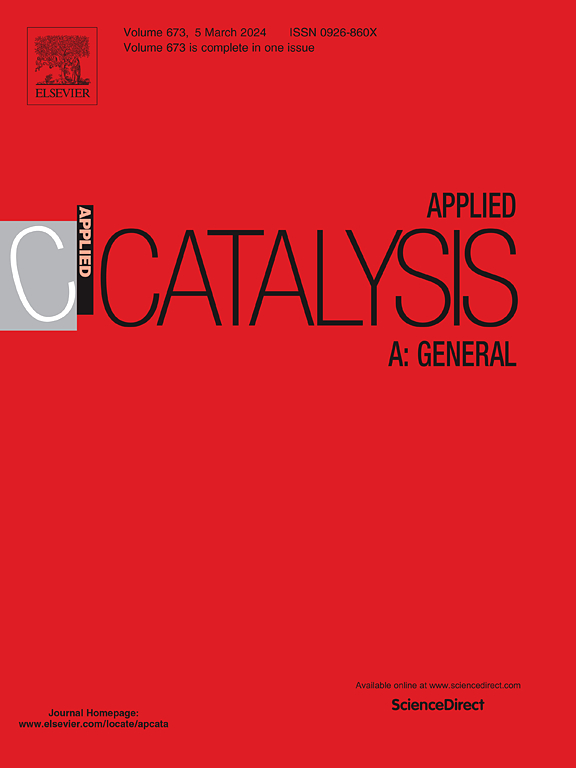Effect of potassium on the reaction stability of CoCu catalysts for higher alcohol synthesis from syngas
IF 4.7
2区 化学
Q2 CHEMISTRY, PHYSICAL
引用次数: 0
Abstract
Developing the stable CoCu catalysts for higher alcohol (HA) synthesis is hindered by the dynamic evolution of complex active sites. Herein, a potassium (K)-modified strategy was proposed to address these issues. The regulating effect of K on Co and Cu sites was comprehensively explored. K doping not only enhanced the metal dispersion, but also regulated the Co0/Coδ⁺ ratio and provided the hydroxyl groups (OH*). The enhanced metal dispersion was ascribed to the improved electrical conductivity, strengthening the synergistic effect. The Co0 proportion of Cu-rich catalysts increased, while it decreased over Co-rich catalysts. The K-induced OH* enhanced CO adsorption ability of Cu species, improving HA selectivity and restraining the aggregation of Cu species. The higher Co0 proportion mitigated the impact of Co evolution. Hence, K doping Cu-rich catalysts boosted total alcohol selectivity from 9.1 % to 17.4 %, reduced methanol fraction from 61.7 % to 37.1 %, and achieved excellent stability during 100 h test.
钾对合成气合成高醇CoCu催化剂反应稳定性的影响
复杂活性位点的动态演化阻碍了合成高醇(HA)的稳定CoCu催化剂的开发。本文提出了一种钾(K)修饰策略来解决这些问题。全面探讨了钾对Co和Cu位点的调节作用。K掺杂不仅增强了金属的分散性,还调节了Co0/Coδ +的比例,并提供了羟基(OH*)。金属分散性的增强归因于电导率的提高,增强了协同效应。富cu催化剂的Co0比例增加,而富co催化剂的Co0比例降低。k诱导OH* 增强了Cu种对CO的吸附能力,提高了HA的选择性,抑制了Cu种的聚集。较高的Co0比例减轻了Co演化的影响。因此,K掺杂富cu催化剂将总醇选择性从9.1 %提高到17.4 %,甲醇分数从61.7 %降低到37.1 %,并在100 h测试中获得了良好的稳定性。
本文章由计算机程序翻译,如有差异,请以英文原文为准。
求助全文
约1分钟内获得全文
求助全文
来源期刊

Applied Catalysis A: General
化学-环境科学
CiteScore
9.00
自引率
5.50%
发文量
415
审稿时长
24 days
期刊介绍:
Applied Catalysis A: General publishes original papers on all aspects of catalysis of basic and practical interest to chemical scientists in both industrial and academic fields, with an emphasis onnew understanding of catalysts and catalytic reactions, new catalytic materials, new techniques, and new processes, especially those that have potential practical implications.
Papers that report results of a thorough study or optimization of systems or processes that are well understood, widely studied, or minor variations of known ones are discouraged. Authors should include statements in a separate section "Justification for Publication" of how the manuscript fits the scope of the journal in the cover letter to the editors. Submissions without such justification will be rejected without review.
 求助内容:
求助内容: 应助结果提醒方式:
应助结果提醒方式:


